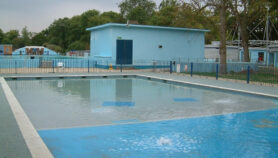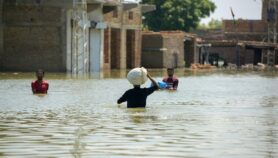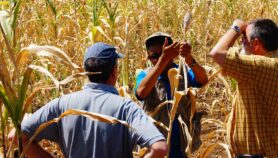By: Tan Shiow Chin
Send to a friend
The details you provide on this page will not be used to send unsolicited email, and will not be sold to a 3rd party. See privacy policy.
[KUALA LUMPUR] A cheap flood alarm made from plastic piping and other simple materials has won its 16-year-old inventors a string of prizes.
FloodWarn — a low-cost, portable device designed for individual households or properties — was inspired by the flash floods experienced by one of the students, Yoong Wern, in his city home.
It is made from a PVC (polyvinyl chloride) pipe, a rechargeable mobile phone battery, a solar cell, a buzzer, a sensor and an electronic circuit.
The contraption’s buzzer sounds when water levels reach a pre-set level within the device.
"The device will only be activated when submerged with water, not by rainfall or splashing," Wong told SciDev.Net.
"Owners can install FloodWarn in the drains around their house on their own. And it is powered by a solar battery charging system that supports long-term operations."
Wong added that he and his teammates — fellow students Chew Ming Han and Dominic Teh Shan Xiong — plan to improve the device so that it can send a signal to the owner’s mobile phone once a dangerous water level is reached.
The trio, representing HengEe High School in the state of Penang, won the award for Best Invention in both the Asian and Malaysian Young Inventors Competitions held at the 21st International Invention, Innovation and Technology Exhibition 2010 in Malaysia last month (14–16 May).
Wong said that the team is patenting the device and that several Thai companies have expressed an interest in purchasing it.
While the device cost 50 Malaysian ringgit (US$15) for the team to produce, he was unsure of how much a mass-produced device would cost.
Nor Azazi Zakaria, director of the River Engineering and Urban Drainage Unit at the Science University of Malaysia, commended the efforts of the students but said: "We should be asking them to think along the lines of creating a computer program that can utilise available meteorological data to predict the onset of floods about two days in advance".













